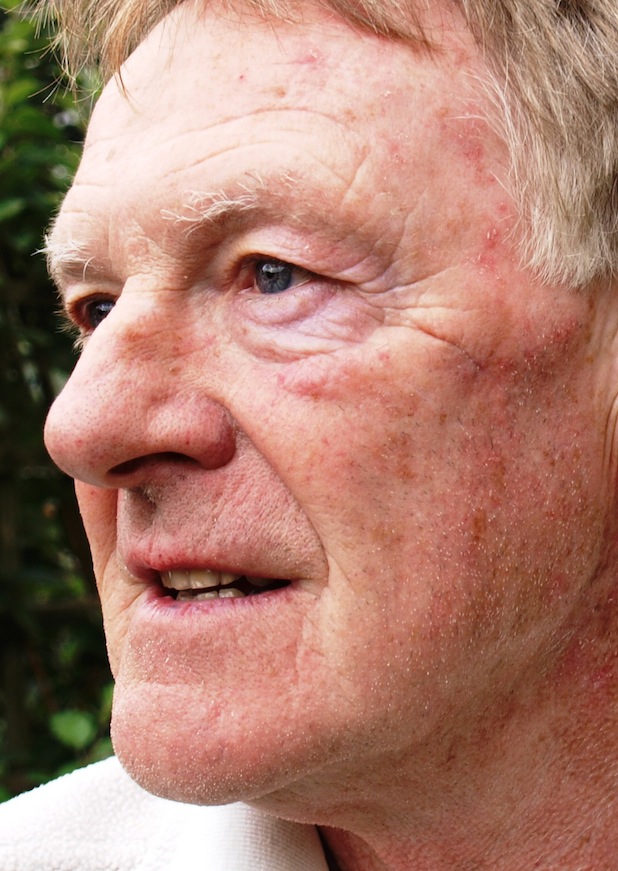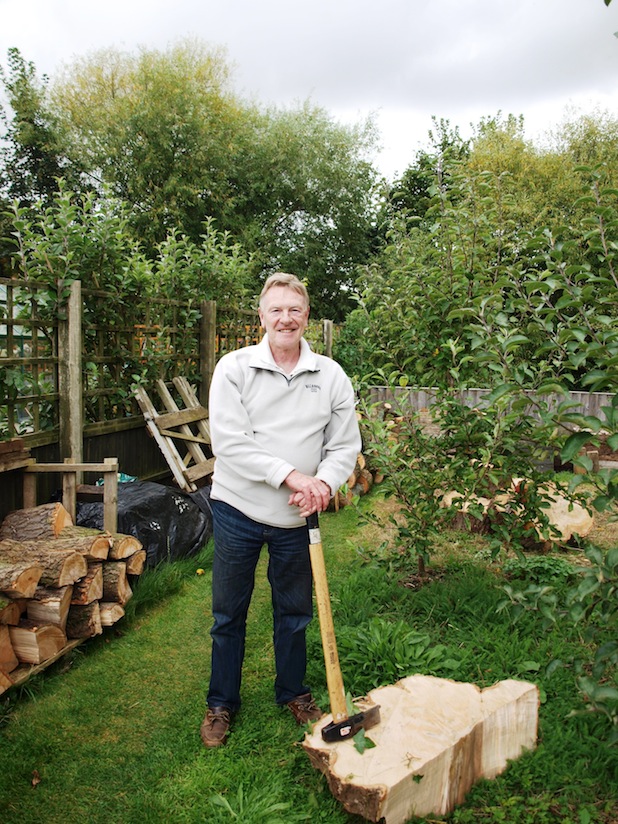Dermatologists are seeing an upsurge in skin cancer amongst older people as a result of sunbathing at an earlier age. In this case study, 66-year-old David discovered he had a dangerous face cancer.
As a lover of ‘the great outdoors’ David has long been aware of the dangers of too much sun and has been plastering on sun cream for years.
Unfortunately, in David’s case, the damage was done long before Factor 50 became fashionable and now, after just having a dangerous cancer removed from his face, he is warning others in his age group to keep a close eye on their skin.
Sixty-six-year-old David was treated at BMI Manor Hospital in Biddenham by consultant dermatologist Anton Alexandroff in a procedure that took less than 90 minutes.
David after the operation
But things could have been much different if he hadn’t acted quickly when the growth appeared on his cheek just below his eye. It turned out to be a squamous cell carcinoma which, if left untreated, can spread around body, initially in nearby glands, and can be a killer.
David, who lives in of Tempsford, Bedfordshire, with wife Juliet, had already left the growth a couple of weeks, thinking it was just a bite or a scratch that had gone septic.
But he finally arranged to see Dr Alexandroff through his BUPA health insurance, and found that immediate action was necessary.
Dr Anton Alexandroff
“Because this cancer is so dangerous I removed it on the very same day. It was over 4mm thick and I considered it high risk,” said Dr Alexandroff.
David explained: “I was going on holiday the following day so I asked if I could be booked in after that. However Dr Alexandroff simply said ‘let’s do it now’ and 90 minutes later I was on my way home minus a skin cancer! It really was that easy.”
“I have to admit that at first I was a bit surprised because, as a typical fair-skinned Scotsman, I have always had sensitive skin so I have always been careful about using creams and keeping covered up in the sun.
“However, it seems the damage was one when I was just a boy – long before high factor sun creams were in use. In those days if you got burned you used calamine lotion to ease the pain rather than creams to prevent the burning in the first place!
“If it happened to me then it will have happened to many others in my age group and I am warning people that no matter how careful they are now they need to be on the lookout for moles or blemishes that could be cancerous.
“My case showed just how quickly they can be treated if they are spotted early enough.”
David back in his garden at home
Dr Alexandroff added: “The rate of skin cancers is on the increase and unfortunately every year we see more and more skin tumours – not only in older people but also in middle age group and even in younger patients.
It is extremely important to be careful with sun protection from an early age onwards, because sun-damage accumulates with time and increases the risk of skin cancers later in life.
“In particular it is a good idea to keep kids well covered – a broad-brimmed hat, long sleeves, long trousers or a long skirt are always good and choose a sunscreen with sun protection factor (SPF) 30 or higher and re-apply it every two hours.”
About BMI Manor Hospital
1. BMI The Manor Hospital has 23 beds with all rooms offering the privacy and comfort of en-suite facilities, satellite TV and telephone.
2. The hospital has a theatre, endoscopy room and a minor procedures room.
3. These facilities, combined with state-of-the-art technology and on-site support services, enable our consultants to undertake a wide range of procedures from routine investigations to complex surgery.
4. This specialist expertise is supported by caring and professional medical staff, with dedicated nursing teams and Resident Medical Officers on duty 24 hours a day, providi
ng care within a friendly and comfortable environment.
About BMI Healthcare
1. BMI Healthcare is the UK’s largest independent provider of private healthcare with 69 hospitals and healthcare facilities throughout the country
2. More than 6,000 consultants choose to practice at BMI hospitals, which collectively handle over 1.25 million patient visits each year
3. BMI Healthcare focuses on clinical excellence, quality of service and efficiency, and have a deserved reputation in the independent healthcare sector for consistent achievement of these values
4. For more information about BMI Healthcare hospitals, please visit www.bmihealthcare.co.uk






